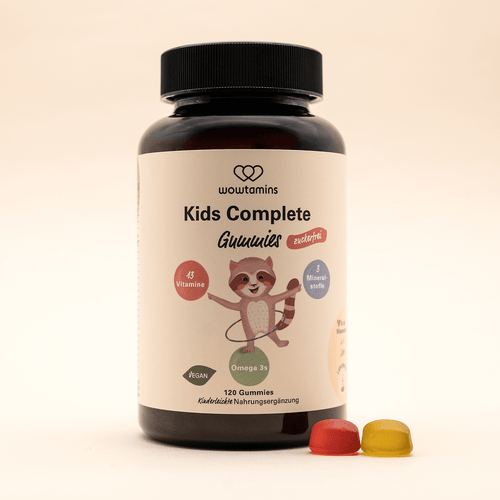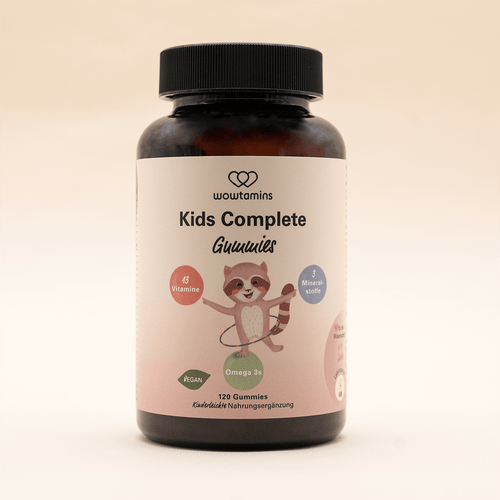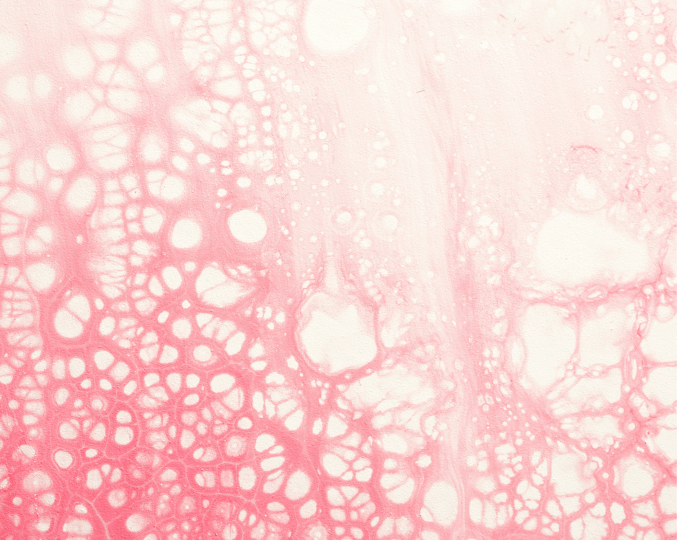Themen dieses Blogartikels:
What is selenium?
Selenium is a mineral that belongs to the trace elements.
What are the functions of selenium?
Selenium is important for protecting cells from oxidative stress, as it is found in the enzyme glutathione peroxidase¹. Glutathione is the body's most powerful antioxidant. The reaction in which glutathione reduces oxidative stress is catalyzed by glutathione peroxidase. Selenium is also a component of several other enzymes and proteins. Through its integration in the glutathione peroxidase of sperm, selenium is also important in reproduction. Selenium is also relevant as a component of an enzyme for the function of the thyroid gland, as this enzyme is involved in the production of hormones. Selenium also supports hair and nails. Likewise the immune system.²
What makes selenium unique?
Although it is said that there are 20 proteinogenic amino acids, i.e. amino acids that occur in proteins, this turns out to be incorrect. The 21st amino acid, selenocysteine, is a modified serine amino acid. This amino acid, selenocysteine, is particularly popular in enzymes that are used in redox reactions, as the amino acid has a high redox potential.³
How much selenium do you need per day?
The German Nutrition Society (DGE) gives the following estimates for an adequate selenium intake⁵:
| Age | Selenium mg/day male | Selenium mg/day female |
| Infants | ||
| 0 to under 4 months | 10 | 10 |
| 4 to under 12 months | 15 | 15 |
| Children and teenagers | ||
| 1 to under 4 years | 15 | 15 |
| 4 to under 7 years | 20 | 20 |
| 7 to under 10 years | 30 | 30 |
| 10 to under 13 years | 45 | 45 |
| 13 to under 15 years | 60 | 60 |
| 15 to under 19 years | 70 | 60 |
| Adults | ||
| 19 to under 25 years | 70 | 60 |
| 25 to under 51 years | 70 | 60 |
| 51 to under 65 years | 70 | 60 |
| 65 years and older | 70 | 60 |
| Pregnant women | 60 | |
| Breastfeeding | 75 |
When do you need selenium most?
The need for selenium is increased in the case of severe oxidative stress, as the glutathione peroxidase has to work more intensively. Membranes can thus be protected.⁴
How does an selenium deficiency develop and how does it manifest itself?
A selenium deficiency is unlikely with a balanced diet. In most cases, a disease such as cystic fibrosis, renal insufficiency or chronic diarrhea is behind it if too little selenium reaches the tissue. However, eating disorders such as anorexia or bulimia as well as poorly planned veganism can also contribute to a selenium deficiency. The consequences can be an increased susceptibility to infections, thyroid problems and, in men, fertility problems. In pregnant women, selenium deficiency can lead to miscarriage. If there is a severe deficiency of this micronutrient, two rare, very specific diseases can develop - Keshan disease (a heart muscle disease) and Kashin-Beck disease (a disease of the bones and joints).⁶
What happens if there is an overdose of selenium?
The Federal Institute for Risk Assessment (BfR) recommends taking no more than 40 µg of selenium per day in the form of food supplements⁷. An excess of selenium is initially noticeable through the smell of garlic on the breath. A permanent overdose can lead to selenosis, which can manifest itself in visual disturbances, nerve damage and diarrhea. Acute selenium poisoning can lead to heart failure and death.⁸
Which foods are particularly high in selenium?
Selenium is found as a trace element in meat, fish, mushrooms, cabbage, asparagus, nuts and pulses.
This dictionary entry is based on carefully researched sources:
Bibliography & Sources
- https://www.gelbe-liste.de/wirkstoffe/Selen_1277
- https://www.klartext-futterrgaenzung.de/wissen/lebensmittel/futterrgaenzmittel/selen-ein-guter-schutz-fuer-unseren-koerper-17732
- https://www.scinexx.de/news/biowissen/das-raetsel-der-21-aminosaeure/
- https://www.chemie.de/lexikon/Selen.html
- https://www.dge.de/forschung/referenzwerte/selen/
- https://www.msdmanuals.com/de-de/heim/ern%C3%A4hrungsst%C3%B6rungen/mineralstoffe/selenlack
- https://www.bfr.bund.de/cm/343/aktualisierung-2023-hoechstmengevorschlaege-fuer-selen-in-lebenssmittel-inklusive-smittelergaenzmitteln.pdf
- https://www.msdmanuals.com/de-de/heim/ern%C3%A4hrungsst%C3%B6rungen/mineralstoffe/selen%C3%BCberschuss























